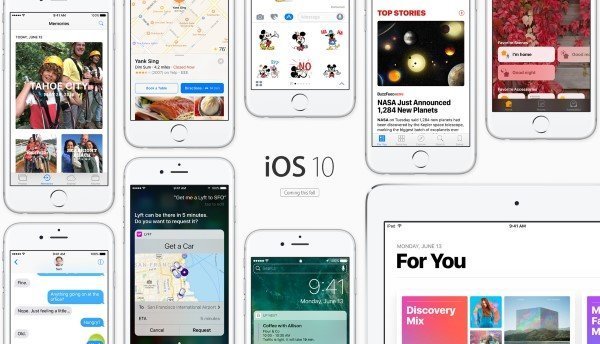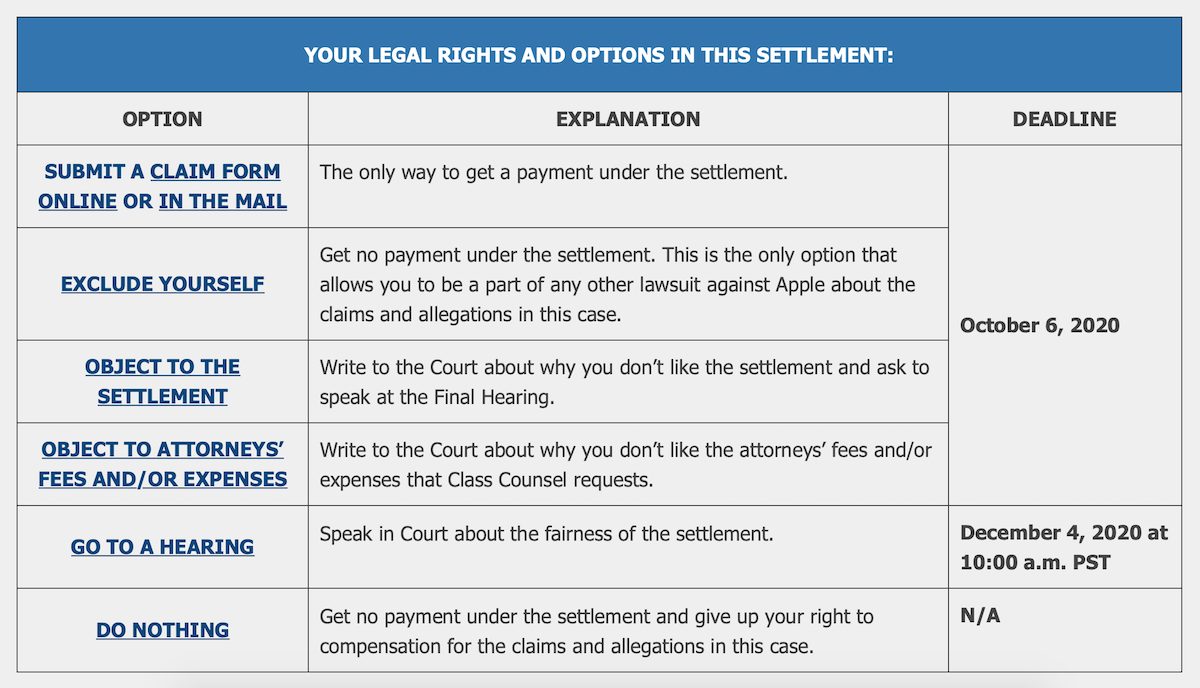As a settlement of a class-action lawsuit against Apple, the United States District Court of the Northern District of California has sent legal notices to owners of older iPhone models informing them of their legal rights and option in the “re Apple Inc. Device Performance Litigation” case.
After a two years-long legal battle, Apple finally agreed to settle a lawsuit filed in 2017 which accused the company of deliberately slowing down older iPhones.
The notice reads:
The Court ordered this notice because you have a right to know about a proposed settlement of class action lawsuits against Apple relating to certain iOS software that allegedly diminished the performance of Apple devices, and about your options, before the Court decides whether to approve the settlement. If the Court approves the settlement and after any appeals are resolved, an administrator will make the payments that the settlement allows.
Now the US owners of the following smartphone models are eligible of making a cash claim from the defendant, Apple, under a class action settlement:
- iPhone 6, 6 Plus, 6s Plus or/and iPhone SE on iOS 10.2.1 or later
- iPhone 7 or/and 7 Plus on iOS 11.2 or later

Consumers Legal Rights and Options
The court has set up a website, Smartphone Performance Settlement, for the consumers which lists down the aforementioned iPhone owners of their legal options and the deadlines of filing their claims. 6th October 2020 is the final day to submit a claim, objection to the settlement and attorney’s fee, and consumers can also choose to exclude themselves from this settlement to be part of other lawsuits against Apple.
As per the notice, the company is liable to pay a sum a minimum of $310 million or a maximum of $500 million depending on the filed settlement claims. Each plaintiff will get $25 approximately.

Apple’s Performance Management System
In 2017, a new performance management system was introduced in iOS 10.2.1 update which throttled the performance of chemically aged batteries of the aforementioned iPhone models. The legal issue arose when the release notes of the said update did not mention the changes and they were discovered by John Poole, founder of Primate Labs.
Even after the discovery, Apple took the responsibility of a lack of communication but categorically denied any accusation of wrongdoing. Even now, the settlement is described by Apple as a means to end “costly litigation” and is not an admission of guilt. The Court’s notice states:
“The Court did not decide the case in favor of Plaintiffs or Apple. Instead, both sides agreed to a settlement. That way, they avoid the cost of a trial, and settlement benefits go to the Settlement Class Members. The Named Plaintiffs and their attorneys (“Class Counsel”) think the settlement is in the best interests of the members of the Settlement Class”.
Currently, users can enable the scandalous performance management system manually. Apple disabled the feature by default in iOS 11.3 update.
Read Also:
4 comments